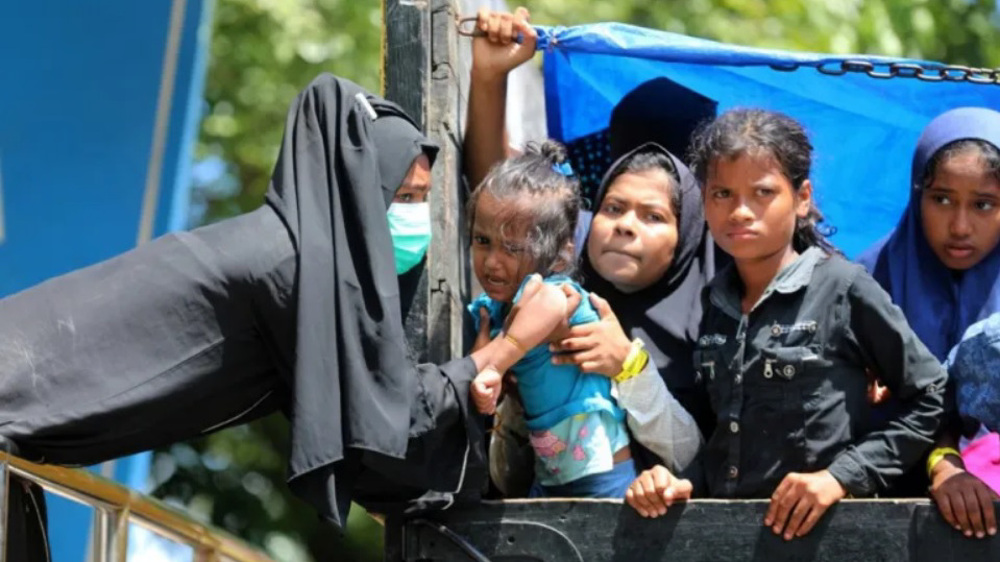UN grills Australia over refugees, indigenous people
The United Nations Human Rights Committee has for a second day in Geneva grilled a delegation from Australia over the country’s human rights record, slamming the government’s policies toward refugees and its indigenous population.
The committee condemned the Australian government on Thursday for detaining the refugees who arrive at its shores by boat.
“How does the state justify treating migrants as criminals?” it asked.
Under the country’s controversial refugee laws, anyone intercepted while trying to reach Australia by boat is sent to detention camps in the remote Manus Island in Papua New Guinea (PNG) and the island country of Nauru. There, the refugees are reportedly kept in squalid conditions and subjected to different forms of abuse.
On the second day of questioning, the Committee’s vice-chair, Yuval Shany, said harsh detention conditions “rising to the level of cruel treatment,” unjustified use of physical force, and the handcuffing of asylum seekers appeared unreasonable actions.

“We are not questioning Australia’s right to exercise border control,” he said, “We are concerned with two elements, one is the issue of non-refoulement [returning a person to danger]… and the second is the treatment of these migrants who are seeking asylum while present in Australian jurisdiction, in particular with their right not to be arbitrarily deprived of their liberty.”
The other committee member, Sarah Cleveland, described the controversial policy of refugee detention as “shocking.”
“I find the legal regime in place quite shocking for this state, particularly for a state that holds itself as broadly human rights compliant,” she added.
Responding, the Australian government’s delegation said, “Australia acknowledges its approach is firm and is not universally liked, but it is consistent with our international obligations, including non-refoulement.”
“Australia’s approach seeks to permanently disrupt the business model of the criminal syndicate people-smugglers that prey on vulnerable people, taking their money and encouraging them onto unseaworthy vessels, where there’s a significant chance they will drown,” said Luke Mansfield, first assistant secretary with the department of immigration and border protection.
Since 2013, Australian authorities have intercepted at least 771 refugees on 31 boats and returned them to source or transit countries, or sent them to the detention camps, Mansfield said.
Policies toward the indigenous population
The committee also criticized Australia for its “chronic non-compliance” with the committee’s recommendations over the mandatory detention of children.
The government of Western Australia State was criticized by the Committee in particular over the case of a young Aboriginal woman who died in police custody less than 24 hours after being arrested for $3,622 in unpaid fines back in 2014.
A coronial inquest found this year that the 22-year-old woman, known only by her last name Dhu, suffered a catastrophic deterioration of her health and died of complications arising from septicaemia.
Western Australia’s attorney general has promised to amend the laws by the end of the year. He has not yet introduced the reforms, however.

Muhumuza also mentioned the case of an Indigenous mother of five who was imprisoned last month for unpaid fines. She was released after an anonymous donor paid off her fine, however.
“What is done to police personnel who, instead of helping a person in need, arrest that person instead?” he asked. “How is this consistent with the trauma-informed approach for children experiencing domestic violence situations?”
Aboriginal Australians are considered the most disadvantaged social group in the country, suffering higher rates of imprisonment, unemployment, illness, and child mortality.
Democrats threaten govt. shutdown after second ICE killing in Minneapolis
MSF to disclose limited list for Gaza staff after Israel revoked its aid licenses
VIDEO | India defies Western push at UN Rights Council on Iran
Cuba's president observes drills, vows high cost for any US aggression
Iran dismisses Nazi-style propaganda on riot death toll
Israel kills more civilians in Gaza amid relentless ceasefire violations
VIDEO | Press TV's news headlines
Israeli soldier fakes kidnapping of Palestinian to extort family












 This makes it easy to access the Press TV website
This makes it easy to access the Press TV website